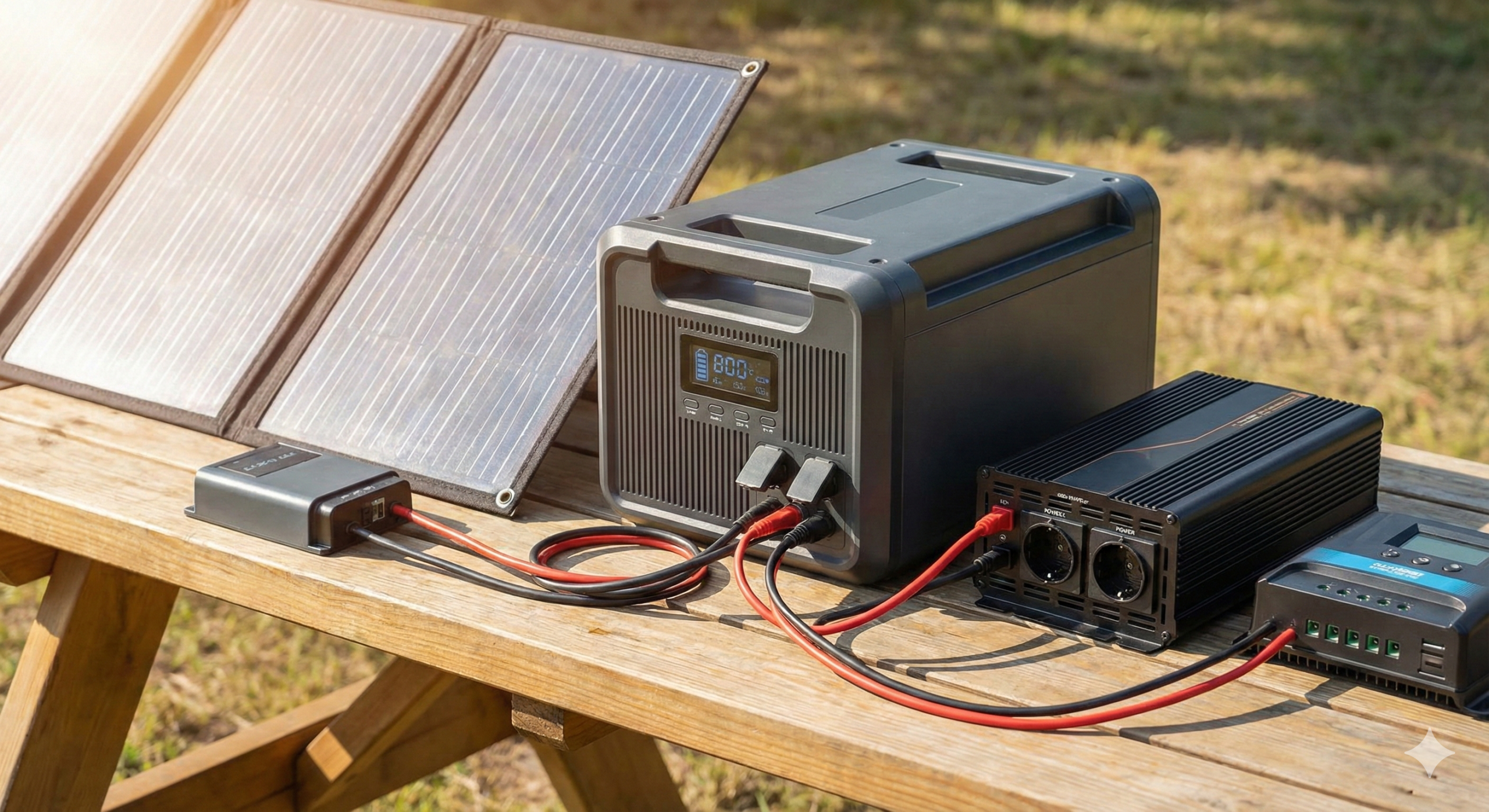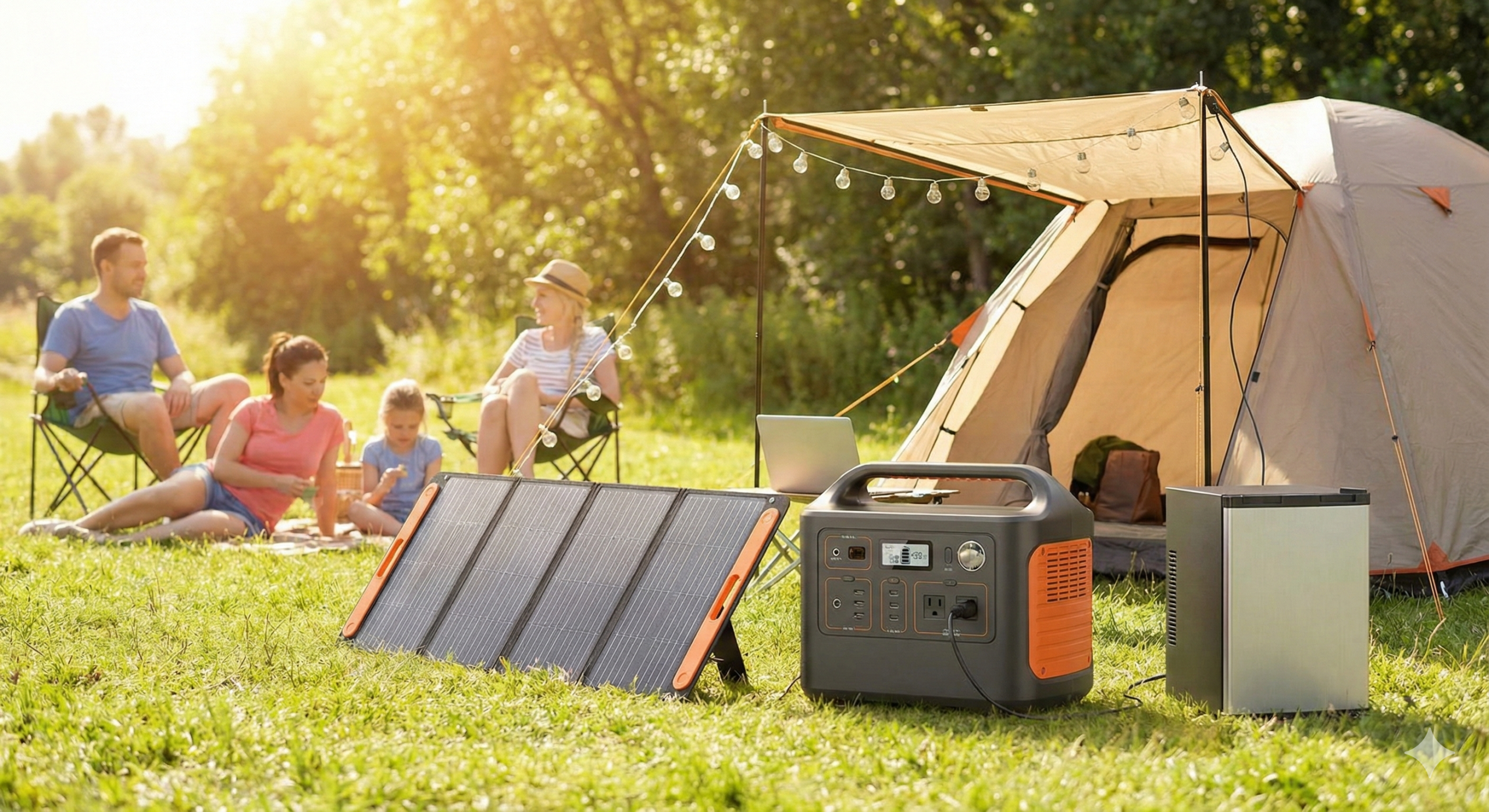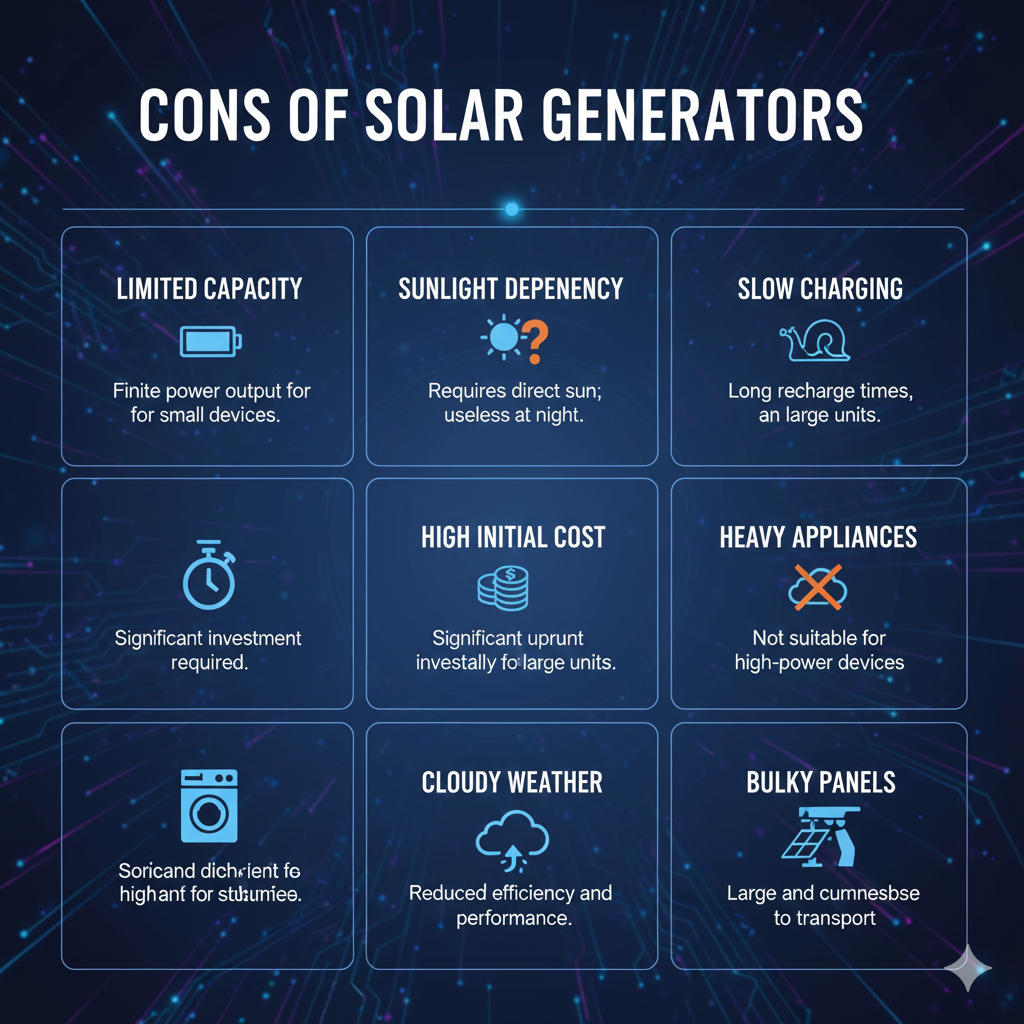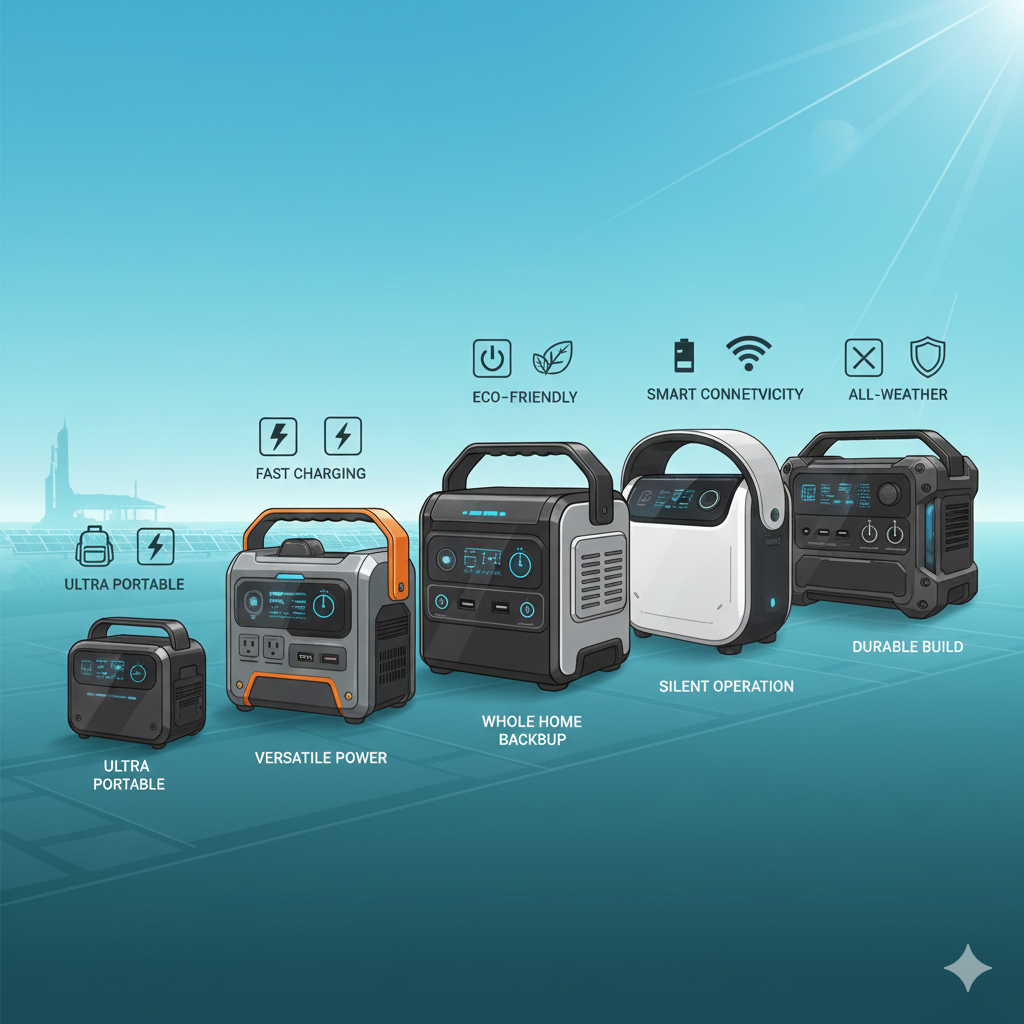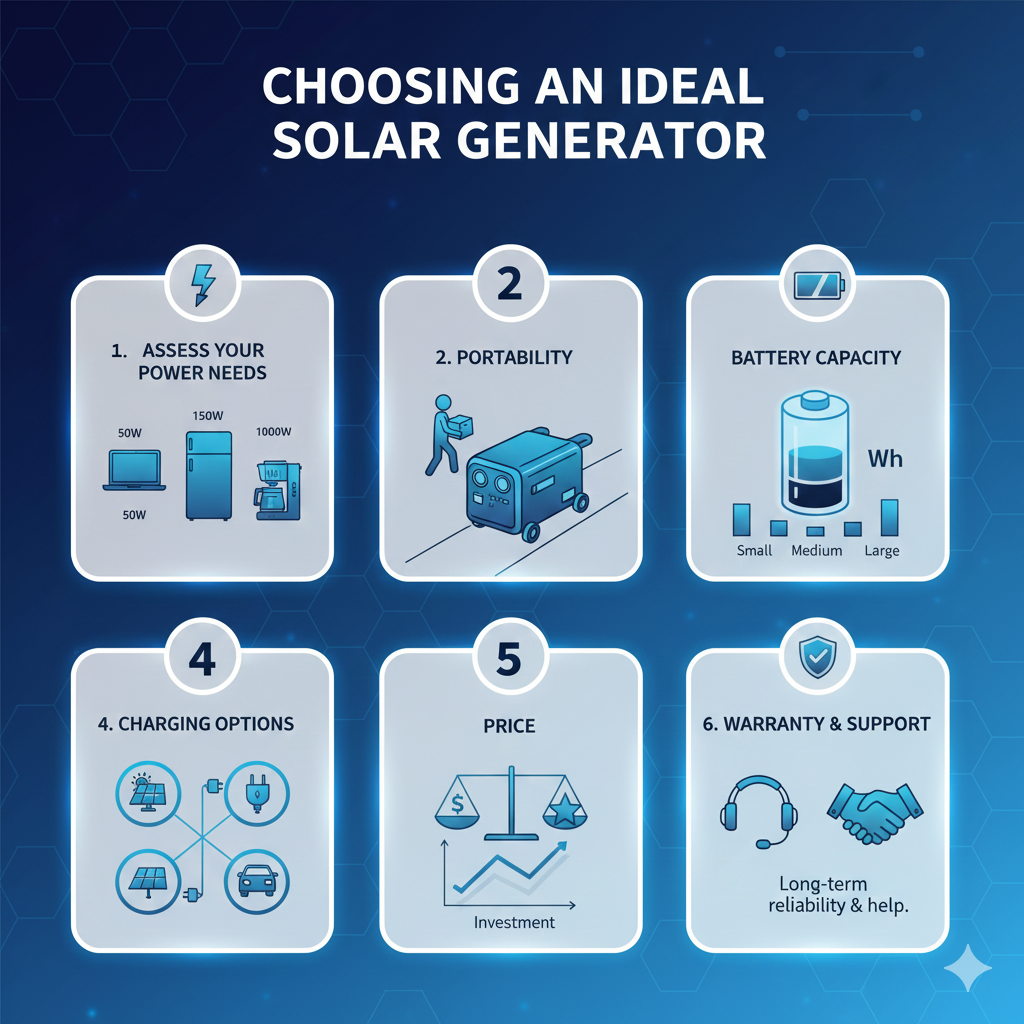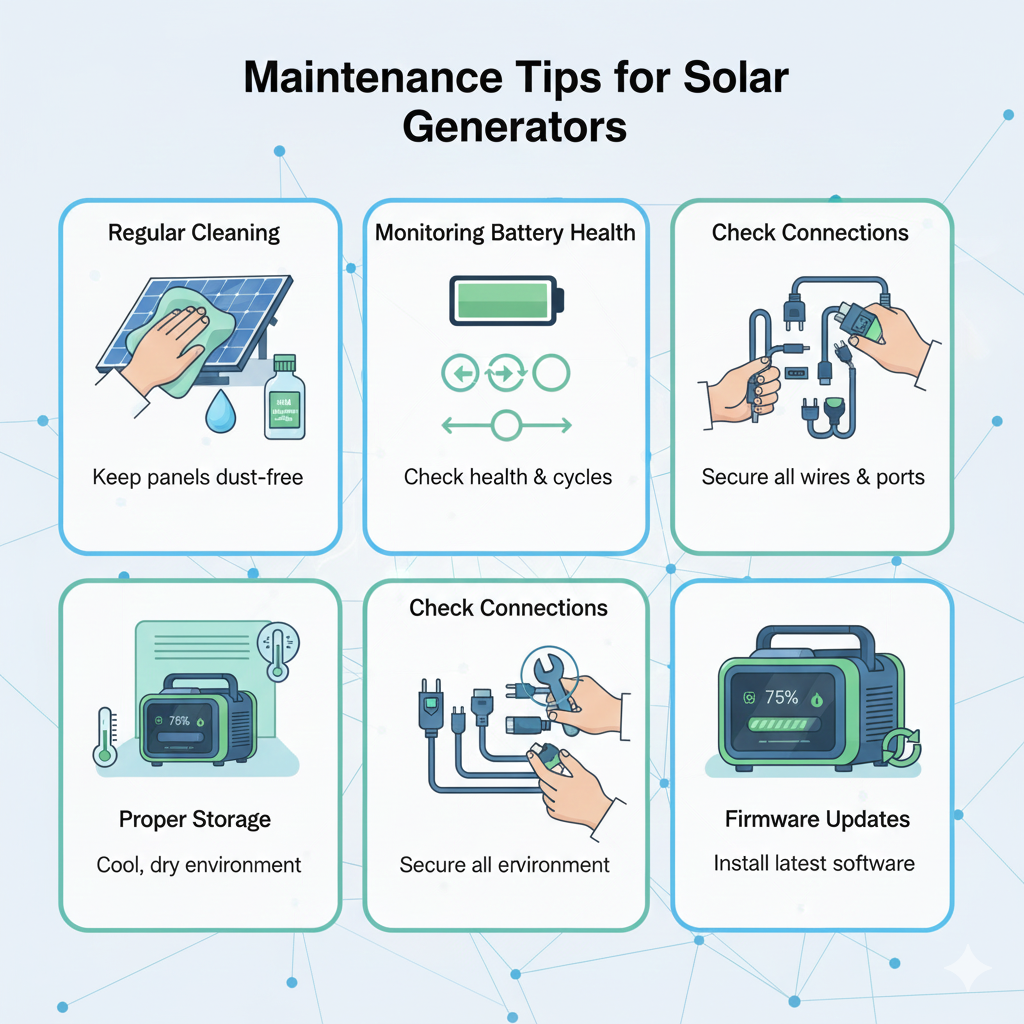Solar Generators vs. Home Battery Storage: A 2026 Guide
In many countries turning toward renewable energy solutions, solar generators have become an increasingly popular solution for numerous uses–from outdoor adventures to home backup power. Not only can these devices reduce our reliance on fossil fuels while providing an easier, sustainable means to produce electricity.
What Are Solar Generators?
| Feature | Portable Solar Generator | Whole-Home Battery Storage |
|---|---|---|
| Best For | Camping, RVs, tailgating, or powering 1-2 small devices in an outage. | Powering your entire home, surviving multi-day blackouts, and slashing utility bills. |
| Power Output | Low (500W – 3,000W). Can’t run A/C, a well pump, or an oven. | Very High (5,000W – 12,000W+). Can run all your essentials, including A/C. |
| Installation | None. Plug-and-play. Must be manually operated. | Fully automatic. Professionally installed and integrated with your home’s electrical panel. |
| Federal Tax Credit? | No. | Yes. Eligible for the 30% Federal Solar Tax Credit when paired with solar. |
The system is designed to convert sunlight into usable electricity. Solar generators are not like other gasoline or diesel generators that rely on combustion to power them. The solar energy captured by the solar panels is stored away for later use by the batteries. An eco-friendly alternative solution can be used to power devices and appliances in various settings.
Need a Custom Power Solution?
Our energy experts can help you design the perfect system, from a small off-grid setup to a full home battery backup.
Key Components of a Solar Generator
To further learn how solar generators function, let’s look closely at their core components.
- Solar panels which convert sunlight directly to direct current are at the core of any system. Solar panels can either be integrated directly into generators or exist independently, allowing for increased flexibility regarding setup.
- Solar panel-generated DC electricity can be stored in batteries for later use, even without sunlight; the batteries’ capacity determines how much power each generator can generate.
- Most household devices require AC electricity, making the inverter an essential household appliance. It converts stored DC electricity to AC electricity usable for daily life appliances.
- This component regulates voltage and current flowing from solar panels to batteries to avoid overcharging while increasing battery lifespan. There are multiple different kinds of solar generators.
- Home Solar Generators: Home solar generators are larger systems that provide backup power during home outages. They often come equipped with larger-capacity batteries, making them suitable for powering larger appliances such as refrigerators, air conditioners, and medical equipment.
Pros of Solar Generators
1. Environmentally Friendly
One of the chief advantages of solar generators is their reduced environmental footprint. By harnessing solar energy instead of fossil fuel energy sources, solar generators help lower greenhouse gas emissions compared to traditional forms. Utilizing one is not only good for business but also a responsible choice for consumers seeking cleaner air and a healthier planet.
2. Quiet Operation
Compared with gas generators, which can be loud and disruptive, solar-powered generators operate silently—an advantage particularly beneficial at outdoor events, camping trips, or residential neighbourhoods where noise restrictions apply. Their silent operation enables users to take full advantage of nature or maintain peace at home while enjoying nature without disrupted sound from traditional generators.
3. Lower Operating Costs
Once you invest in a solar generator, its ongoing expenses should be minimal. Solar energy is free, and there are no fuel expenses involved with using one; this can add up to significant savings over time for those relying on them as a daily source of power. Furthermore, many models come equipped with long warranties, further cutting expenses in the long term.
4. Portability
Portable solar generators make great additions for camping trips, tailgating parties and even as backup power sources in your home. A quality portable generator enables easy transportability – lightweight construction combined with user-friendly handles or wheels makes transporting power easier outdoors than with traditional power sources.
5. Versatile Applications
Solar generators offer many uses; from small electronics such as phones and laptops to larger appliances depending on their capacity. Solar power can even power remote access points used by law enforcement agents; it could power their phones as they make calls without disrupting cell coverage, lighting large outdoor signs at night and powering other appliances remotely – ideal if used to:
Camping and Outdoor Adventures
Perfect for powering lights, cooking devices and charging gadgets while camping outdoors.
Emergency Power
This provides backup electricity during power outages so that essential devices such as fridges and medical equipment remain operational.
Off-Grid Living
This is ideal for homes located in remote areas without traditional electricity access. RVing and Travel offer another great solution, helping travellers keep power flowing for appliances while moving.
RVing and Travel
Solar generators are user-friendly products. Many models feature plug-and-play capabilities, making operation straightforward for even those without technical knowledge.
6. Easy to Use
Simply connect your devices and get going! Solar generators’ user-friendliness makes them accessible to anyone, from outdoor enthusiasts to homeowners.
7. Energy Independence
By investing in a solar generator, you can achieve energy independence – this can be particularly advantageous to those living in remote locations or who wish to reduce rising electricity costs. A solar generator allows users to generate their power while lessening reliance on grid electricity, providing greater freedom and flexibility than using traditional grid sources alone. However, you should keep some key considerations in mind before investing.
Cons of Solar Generators
Although solar generators offer numerous advantages, it is crucial that we acknowledge their drawbacks as well.
1. Initial Cost
The initial investment required of high-quality solar generators designed for home use can be substantial, depending on their capacity and features; prices could range anywhere from several hundred dollars up to several thousand. While such high initial costs might put off some potential users, long-term savings from using one may outweigh them when considering potential savings on electricity bills and benefits provided by having backup power available at all times.
2. Limited Power Output
Solar generators typically offer lower power output than traditional gas generators making them better suited to handle basic appliances and electronics than high-wattage devices such as air conditioners or power tools. As with all purchases, consumers should carefully assess their needs before making an informed purchase decision especially understanding the wattage requirements of devices for an informed purchase decision.
3. Weather Dependence
Solar generators rely on sunlight for electricity production. While they still function on cloudy days and in lower light conditions, their efficiency significantly drops under less-than-ideal lighting conditions and may become unreliable during inclement weather events. Users in areas with limited sunshine exposure might find solar generators less useful as power solutions; an important consideration when purchasing them.
4. Battery Replacement
Solar generator batteries typically last 5-15 years under normal use and maintenance conditions before replacement becomes necessary, adding to overall costs associated with ownership and increasing the long-term value evaluation of solar generators. Battery longevity must therefore be considered in this assessment of their long-term worthiness.
5. Charging Time
Solar generator charging times tend to take more time than filling a gas generator; depending on the size and amount of sunlight available to solar panels and battery size it could take hours for full charge up. This may prove inconvenient during emergency power restoration situations that necessitate quick restoration; therefore, understanding their charging capabilities is vital when providing immediate power restoration solutions.
6. Limited Charging Options
Some solar generators may only offer limited options for charging; although most support solar charging, this could prevent you from charging via car outlet or require specific solar panel types; restricting their flexibility for various situations.
Best Solar Generators on the Market
Knowing the pros and cons of a solar generator, let us examine some of the best models currently in market usage. Portable ones and those for home use are being made today.
1. Jackery Explorer 1000
The Jackery Explorer 1000 solar generator is an affordable yet efficient unit intended for both home and outdoor use
Pros
- Boasts an impressive 1002Wh capacity.
- Lightweight and portable design, weighing only 22 pounds.
- Multiple output ports (AC, USB, and DC) for flexible connectivity.
- Can be charged through solar panels, wall outlets, or car outlets.
Cons
- Reports of poor wireless signal coverage and occasional overheating during use.
- Higher price tag than smaller models, usually around $999.
For anyone seeking a portable generator that can power various devices at once, the Jackery Explorer one thousand is an excellent choice. It is user-friendly and compatible with solar panels, making it popular among outdoor enthusiasts and homeowners.
2. Goal Zero Yeti 1500X
The Goal Zero Yeti 1500X battery solution is intended for users seeking powerful backup or off-grid living solutions, including refrigerators.
Pros
- Its 1516Wh powerful battery can power larger appliances, including fridges.
- Has multiple output options (AC, USB-C, and 12V).
- Expandable battery systems provide increased capacity with additional batteries.
- Chargeable through solar panels or wall outlets.
Cons
- Weighs nearly 45 pounds, which may become cumbersome after extended usage.
- Expensive relative to other models, retailing around $1,999.
The Goal Zero Yeti fifteen hundred X provides users looking for a solid home backup solution with an outstanding option regarding renewable energy use, versatility, and expandability. Ideally priced around the $1,999 mark, it makes an attractive alternative choice for anyone serious about renewable energy production and management.
A solar generator is one of the best tools for an emergency kit, providing safe, indoor power during an outage. The U.S. Department of Homeland Security’s Ready.gov site has a complete guide on how to prepare for a power outage.
3. Bluetti AC200P
The Bluetti AC200P solar generator is designed for both home use and outdoor activities,
Pros
- An impressive 2kW capacity that’s suitable for emergencies.
- Multiple output ports (AC/USB) and wireless charging for convenient connectivity.
- Supports multiple charging options (solar, wall outlet, car, and generator).
- The LCD display provides easy monitoring of power usage and charging status.
Cons
- Its heavy weight (57 pounds) makes it less portable for some users.
4. Rockpals Three Hundred Watt
The Rockpals three hundred Watt solar generator is an affordable and compact unit perfect for light usage or camping trips.
Pros
- Its compact size (7.5 pounds) makes it extremely portable.
- Another draw is its affordability—typically around $299.
- Multiple charging options (solar panels, wall outlets) are available, providing sufficient capacity for small devices like laptops, phones, and lights.
Cons
- Limited capacity (280Wh) may limit larger appliances from being charged.
The Rockpals three hundred Watt generator offers basic power needs for budget-conscious casual users. It is ideal for camping trips and powering small devices as a backup source, though those requiring higher-powered solutions should consider other generator options instead.
5. EcoFlow Delta 1300
The EcoFlow Delta 1300 solar generator is an ultra-powerful and compact device, ideal for outdoor or emergency use.
Pros
- It boasts a 1260Wh capacity to support multiple devices simultaneously.
- Features fast charging technology (full charge in under two hours).
- Lightweight and portable, weighing about 30 pounds.
- Includes a range of output ports to connect various devices.
Cons
- Comes at a premium price point (typically around $1,299).
The EcoFlow Delta 1300 solar generator is an excellent option for those who need power quickly. With its fast charging capabilities and compact portability, this device makes an excellent backup choice both outdoors and inside the home.
Choosing an Ideal Solar Generator
Consider these factors when purchasing a solar generator:
1. Assess Your Power Needs
Consider which devices and appliances require power before selecting a solar generator that fits. Calculate wattage requirements so you know it can meet them all; additionally, consider peak wattage demands when starting up appliances, as these often require more power at startup than running requirements.
2. Portability
To maximize portability during outdoor activities, opt for a lightweight generator with built-in handles or wheels for easier transportation.
3. Battery Capacity
Choose a solar generator with sufficient battery capacity for your needs, since larger capacity models will allow more devices to remain powered on for an extended duration; however, these may also tend to be heavier and costlier models.
4. Charging Options
To provide maximum flexibility when charging a solar generator, look for models offering multiple charging methods – solar panels, wall outlets, and car outlets are ideal options to consider when selecting an appropriate generator model. With such multiple charging solutions available to you, your generator can easily adapt to suit different situations when necessary.
5. Price
Once you know your needs and set your budget accordingly, research various models within that price range to compare costs between them. While lower-cost generators might save money immediately, investing in higher-quality products might provide longer-term value and give greater long-term returns.
6. Warranty and Support
Choose a generator from a trusted brand with warranties and customer support that provides peace of mind if any problems arise with its product.
Maintenance Tips for Solar Generators
Follow these maintenance tips in order to maximise the lifespan and performance of your solar generator:
Regular Cleaning
For optimal solar panel efficiency, keep them clean regularly with a soft cloth and mild detergent for regular maintenance and regular cleaning of dust, dirt and debris that might block sunlight or reduce power output. Dust accumulations should be eliminated regularly using soft sweeping brushes with cleansers such as CLR.
Monitoring Battery Health
Be sure to regularly assess and charge levels on your batteries, following manufacturer recommendations for charging cycles and maintenance to prolong its life and extend battery lifespan.
Keep an Eye On Connections
Regularly inspect connections and ports for wear and tear in order to maintain secure, efficient connections and minimize operational problems.
Store Correctly
When not in use for extended periods, make sure your solar generator is stored safely in a cool and dry environment. This way, it won’t be exposed to extremes in temperature or humidity levels that could potentially compromise its functionality.
Firmware Updates
If your solar generator contains intelligent features, ensure regular checks for firmware updates from its manufacturer to maintain optimal performance and security are carried out to maintain peak performance and safety.
Need a Custom Power Solution?
Our energy experts can help you design the perfect system, from a small off-grid setup to a full home battery backup.
Conclusion
Solar generators represent an innovative and eco-friendly means of powering devices and appliances during camping trips or home emergencies, from camping trips to home emergencies. Each solar generator comes with its own set of advantages and disadvantages; understanding each can help you select a generator tailored perfectly to meet your specific requirements.
With so many models on the market ranging from portable solar generators and home solar generators to options tailored for various uses and purposes, finding your perfect match can be difficult. By carefully considering factors like power requirements, portability and price before making an informed choice that aligns with both energy needs and your budget, choosing an informed option should become second nature. Here is our FAQ section where more details may be found regarding solar generator selection:
How Many Solar Panels Does A Generator Require?
+
A solar generator typically requires between one and two solar panels, depending on its capacity and your individual power requirements. For instance, with a 1,000-watt generator, using one or two 100 to 200 WATT panels is sufficient to charge it—however, it’s essential to factor in your energy consumption and the amount of sunlight available before making this determination for optimal performance.
Can solar generators power large appliances?
+
Solar generators can certainly power large appliances; however, it is crucial that their capacity matches that of your appliance(s). Most large appliances, such as refrigerators and air conditioners, require greater startup power—specifically, around 1500-3000W generators are usually best-suited. Whenever using your appliance(s), double-check both its running wattage and peak wattage to ensure compatibility.
Do solar generators require maintenance?
+
To keep functioning efficiently, solar generators do require periodic upkeep in terms of cleanliness. This includes cleaning off solar panels to eliminate dust and debris accumulations as well as monitoring battery health to maintain optimal charging levels, inspecting connections for wear-and-tear damage as well as keeping generators stored away in cool, dry locations for storage to protect it against extreme temperatures and keeping their lifespan extended by following some simple guidelines for routine care.


